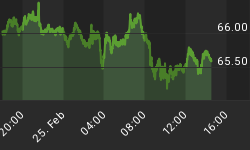The latest volleys in the U.S.-China trade war are taking a toll on Chinese tech stocks, and the most important ETF, iShares China Large-Cap (FXI), which tracks the FTSE China 50 Index, is suddenly one of the riskiest plays around—or so it would seem.

(Click to enlarge)
Chinese tech stocks aren’t faring well right now, and ETFs with exposure to these tech giants are seen by some as increasingly risky. And it may be about to get worse, at least for BABA bears, but there are plenty of bulls in this room because tech giants like Alibaba are too big to fail (just like Apple).
On August 23rd, Alibaba reported earnings that missed Wall Street expectations, with shares losing ground in trading. But this is a mixed picture: It may have come up short on profit, but revenues soared to $12 billion—beyond expectations.
It’s nervous—yes. There were reports that it attempted to influence the reporting on its results and sway media by dictating which numbers to compare with analyst estimates.
Net income attributable to ordinary shareholders fell 41 percent from the same period a year ago, with the company reporting net income at $1.31 billion and earnings per share at 50 cents. Operating profit saw a 54-percent decline to $1.2 billion, but revenues were up by 62 percent for the quarter (compared to last year).
Alibaba is nervous because investors are fearful of the trade war, and the company was relying on the earnings call as an opportunity to show everyone that a trade war won’t hurt them. Related: Emerging Market Currency Crisis Weighs On Gold Prices
They still have reason to be nervous. U.S.-listed shares dropped over 2 percent in Thursday trading, and were sitting at just over $174 at close on Friday.

(Click to enlarge)
Since they hit a record high at close on June 14th of $201.86, they’ve lost nearly 16 percent (or over $81 billion), according to CNBC, which notes that the stock has only gained 1 percent so far all year.
And the pressure is only getting more intense, with no signs of any breathing room. Last week, new tariffs came into effect after both the U.S. and China announced another round. The U.S. brought $16 billion worth of Chinese imports under a 25-percent tariff in the second phase of Trump’s tariffs, while Beijing returned fire by announcing tariffs on a similar amount of U.S. imports.
Bulls aren’t ready to give in on Alibaba—or FXI, for that matter.
John Blank, chief equity strategist at Zacks Investment Research, told CNBC that the Chinese tech/e-commerce giant won’t be spared trade war pain, but the underlying fundamentals are still good.
Alibaba is the biggest “marquee name” in China for stocks, and it’s “just too big, they’re too visual, they’re too liquid and they’re too traded. So they’re just going to stay in the news, and they’re going to be hit—broadsided just like the market for some time to come until this trade talk gets to resolution”, Blank said.
Related: The Disruption Of The Banking Sector Has Already Begun
But while being “broadsided”, Blank expects Alibaba to see 20-percent growth by the end of next year—despite the trade war. And he’s not alone.
FXI also took a hit because Alibaba’s peers slumped along with it last week, including JD.com and Baidu, as Bloomberg reports.

(Click to enlarge)
But it may be premature to run for the exit on FXI. True, China’s giant tech stocks aren’t immune to the trade war and investors are nervous—as indicated by extra high trading volumes—but a little pain doesn’t take these behemoths out of the game, it just makes them (and the ETFs with heavy exposure) cheap enough to buy on the dip.
By Charles Benavidez for Safehaven.com
More Top Reads From Safehaven.com

















